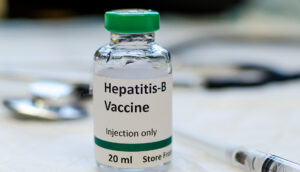A Powerful Weapon in the Battle Against Cancer
Cancer is one of the most formidable health challenges of our time, affecting millions of people worldwide. Over the years, medical research and innovation have led to significant advances in cancer treatment, from chemotherapy and immunotherapy to precision medicine. One of the most promising—and often overlooked—tools in the fight against cancer is vaccines. These vaccines don’t just prevent disease; they can also play a crucial role in cancer prevention and treatment.
How Cancer Vaccines Work?
Cancer vaccines operate on the same basic principle as other vaccines: they help the body’s immune system recognize and fight off harmful invaders. However, instead of preventing infectious diseases like the flu, cancer vaccines are designed to prevent cancer-causing infections or stimulate the immune system to attack cancer cells directly.
There are two main types of cancer vaccines:
- Preventive (Prophylactic) Vaccines
These vaccines help prevent cancer by targeting infections known to cause certain types of cancer. The most well-known preventive cancer vaccines are:- Human Papillomavirus Vaccine (HPV)
HPV is a leading cause of cervical cancer, as well as cancers of the throat, anus, and penis. The HPV vaccine, given to both girls and boys, can prevent these cancers by stopping the infection before it can cause harm.
- Human Papillomavirus Vaccine (HPV)
Learn more about Human Papillomavirus Vaccine (HPV)
-
- Hepatitis B Vaccine
Chronic infection with hepatitis B can lead to liver cancer. The hepatitis B vaccine is a safe and effective way to reduce the risk of liver cancer by preventing the virus from causing long-term liver damage.
- Hepatitis B Vaccine

- Therapeutic Vaccines
Unlike preventive vaccines, therapeutic vaccines are designed to treat cancer in patients who already have the disease. These vaccines work by stimulating the immune system to recognize and destroy cancer cells. Some vaccines have already been approved for specific cancers, such as:- Bacillus Calmette-Guérin (BCG) Vaccine
Primarily used for bladder cancer, BCG is a type of vaccine that helps the body’s immune system fight cancer cells in the bladder. - Cervarix and Gardasil
While these HPV vaccines are also preventive, ongoing research suggests they may have therapeutic potential in treating HPV-related cancers, especially if administered early in the course of the disease. - Sipuleucel-T (Provenge)
This vaccine is designed for prostate cancer treatment. It works by stimulating the immune system to attack prostate cancer cells, improving survival rates in men with advanced prostate cancer.
- Bacillus Calmette-Guérin (BCG) Vaccine
The Benefits of Cancer Vaccines
Cancer vaccines are a breakthrough in oncology, offering several potential benefits for patients and communities alike:
- Prevention of Cancer
Vaccines like the HPV and hepatitis B vaccines can dramatically reduce the risk of certain cancers. By preventing infections that lead to cancer, these vaccines are helping to curb cancer rates globally. - Personalized Cancer Treatment
Therapeutic vaccines offer a more personalized approach to cancer treatment. By stimulating the immune system to target specific cancer cells, these vaccines can complement other therapies like chemotherapy and immunotherapy, enhancing their effectiveness. - Fewer Side Effects
Compared to traditional cancer treatments like chemotherapy, cancer vaccines often have fewer and less severe side effects. This makes them an attractive option for patients who have already undergone other treatments or want to avoid harsh side effects. - Long-Term Protection
Preventive vaccines can offer long-lasting protection against certain cancers. For example, the HPV vaccine can protect against the virus for many years, reducing the long-term risk of HPV-related cancers.
Challenges and Future Directions
While cancer vaccines offer hope, there are still challenges to overcome:
- Limited Availability of Therapeutic Vaccines
Therapeutic cancer vaccines are still in the experimental stages for many types of cancer. More research is needed to develop vaccines for cancers that aren’t currently covered by existing therapies. - Public Awareness
Many people are unaware of the role vaccines can play in preventing cancer. Public health campaigns and education are crucial in encouraging widespread vaccine use, particularly for vaccines like the HPV vaccine. - Cost and Accessibility
Some cancer vaccines can be expensive, and access to them may be limited in certain parts of the world. Efforts are underway to make these vaccines more affordable and available to everyone who needs them.
The Path Forward: A New Era of Cancer Prevention and Treatment
The use of vaccines in cancer prevention and treatment is one of the most promising areas of modern medicine. With continued research, more vaccines will likely emerge, providing patients with additional tools to fight cancer.
For now, vaccines like the HPV and hepatitis B vaccines are already saving lives, preventing cancer, and reducing the global burden of disease. As we move forward, it’s clear that embracing vaccines is an essential part of the fight against cancer—offering hope, protection, and the possibility of a world where fewer people suffer from cancer in the first place.
Conclusion: Embrace the Power of Vaccines
Cancer is a tough opponent, but with the help of vaccines, we are gaining powerful weapons in the battle. Whether preventing infections that cause cancer or developing new therapeutic options, vaccines are helping to change the landscape of cancer treatment and prevention.
